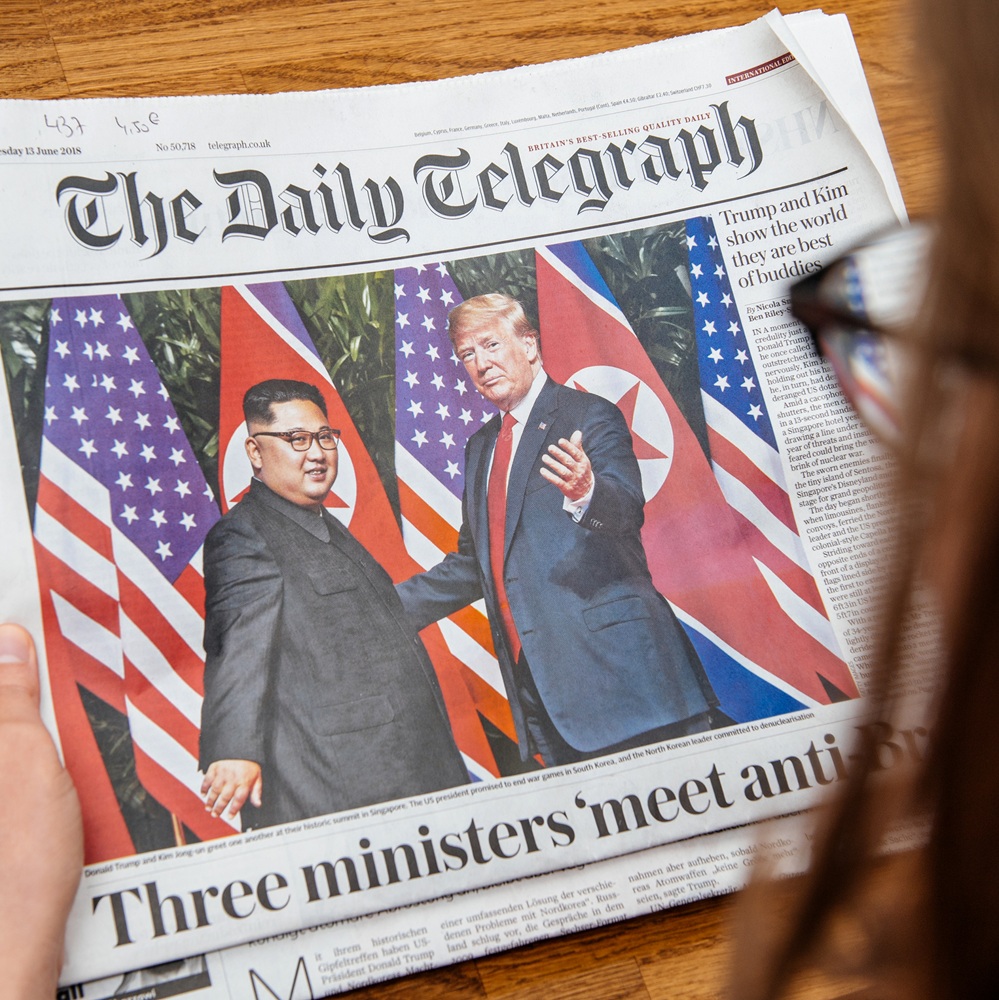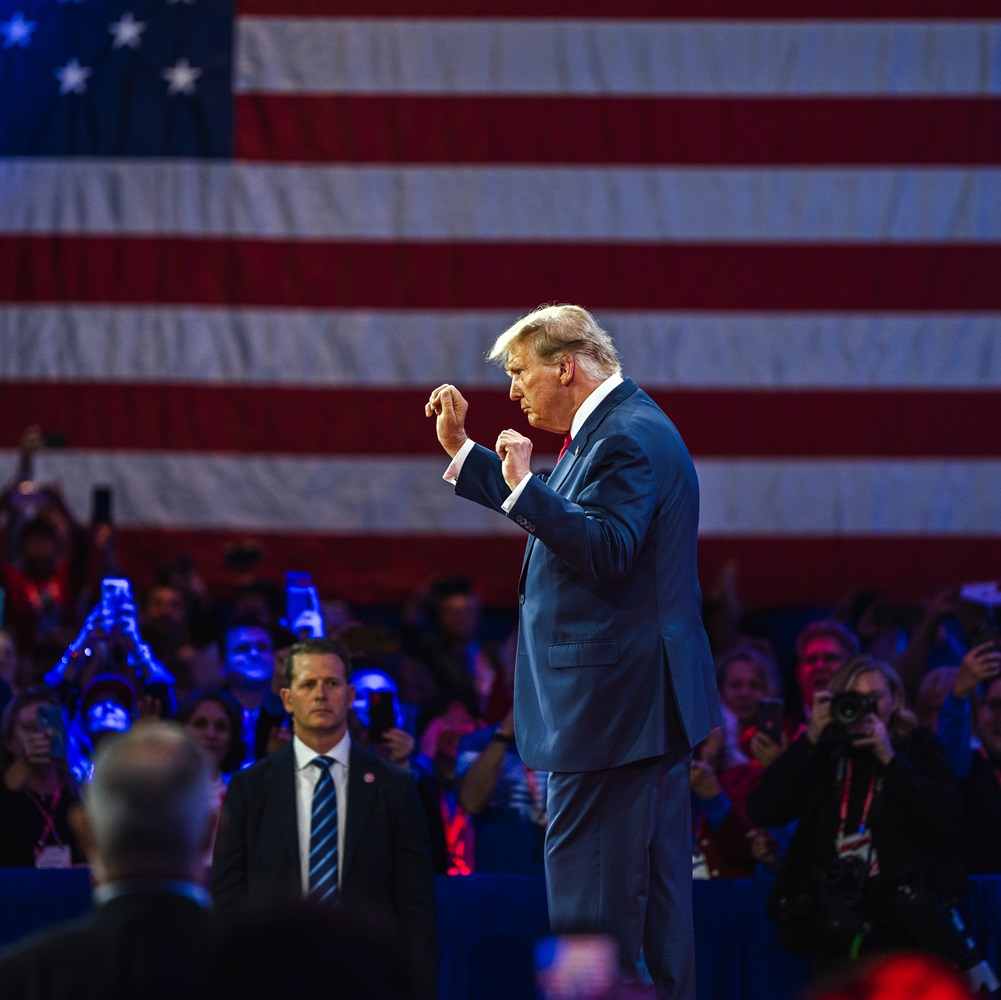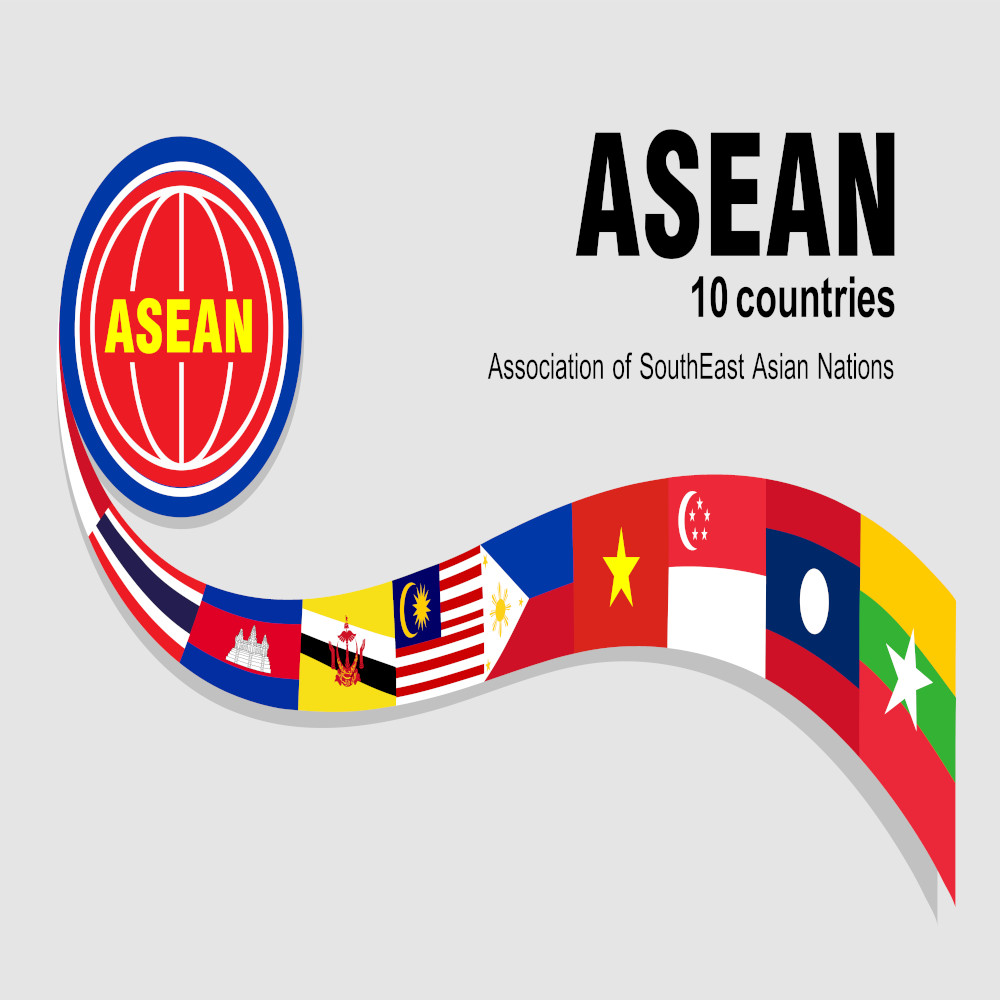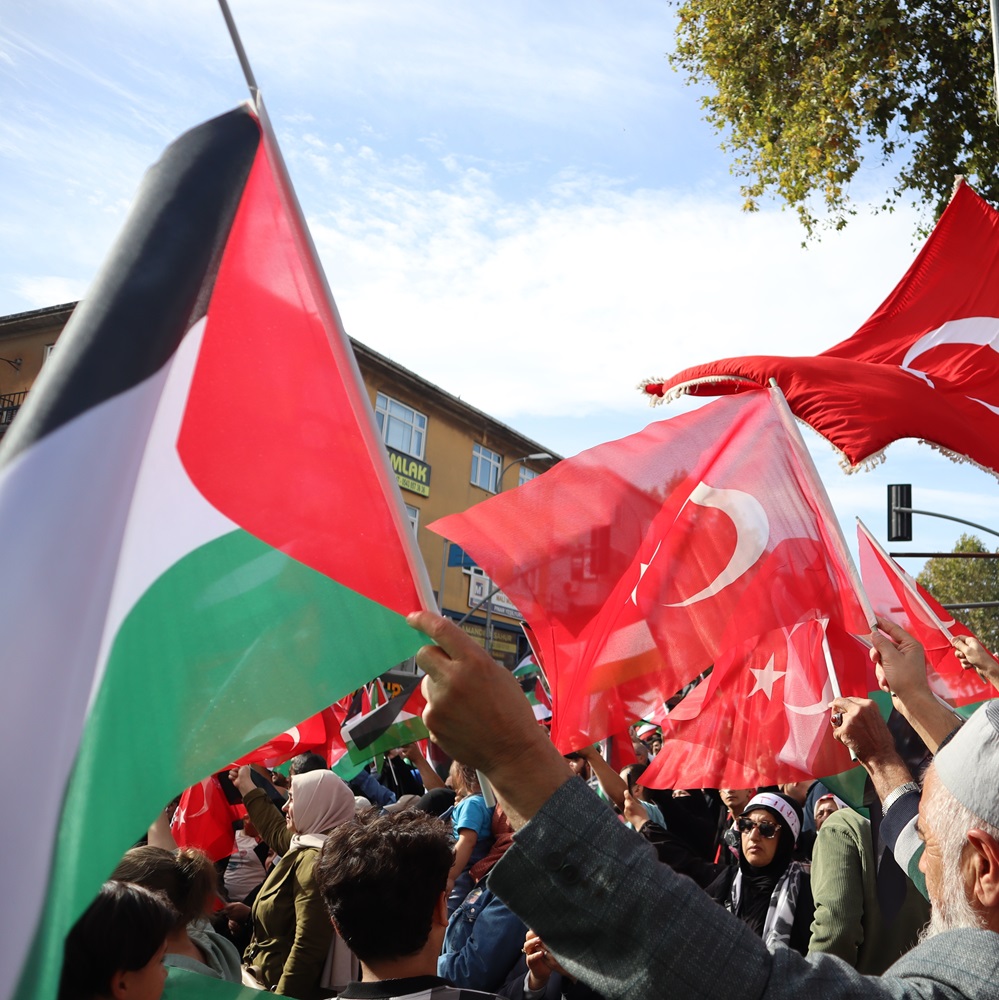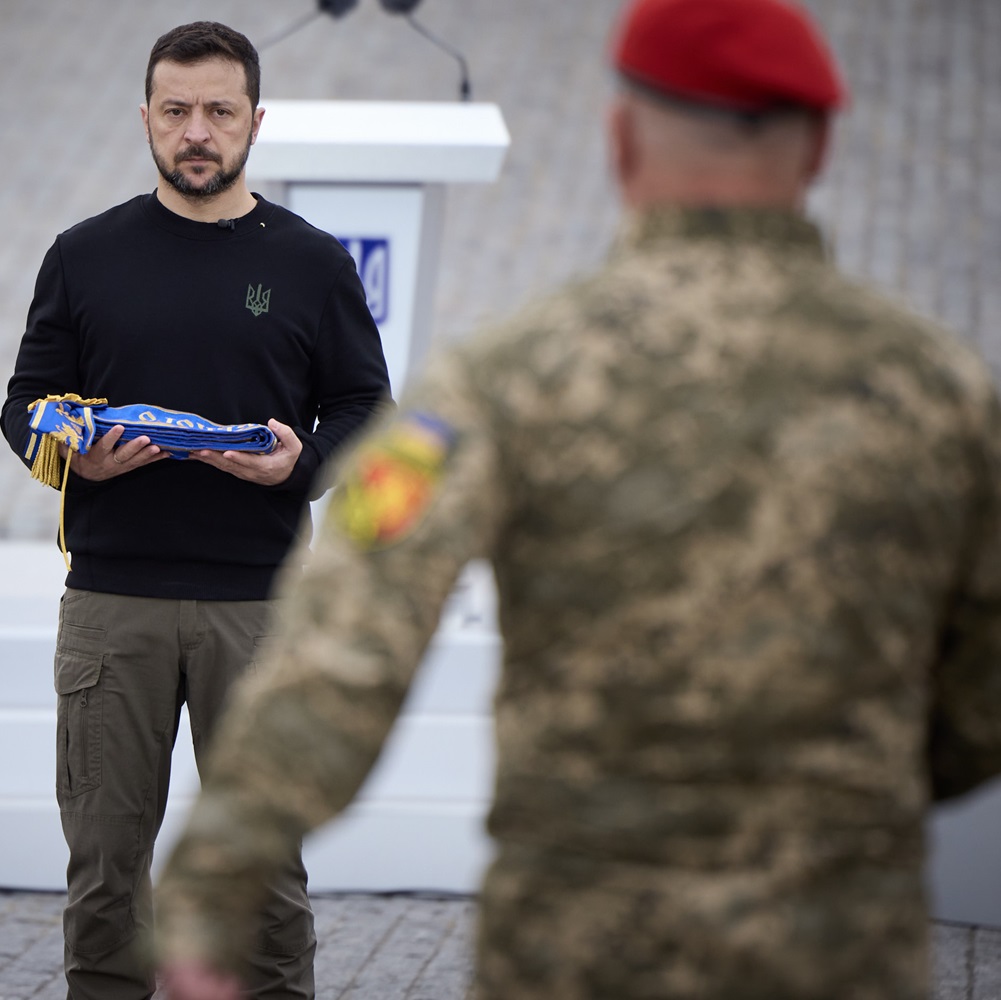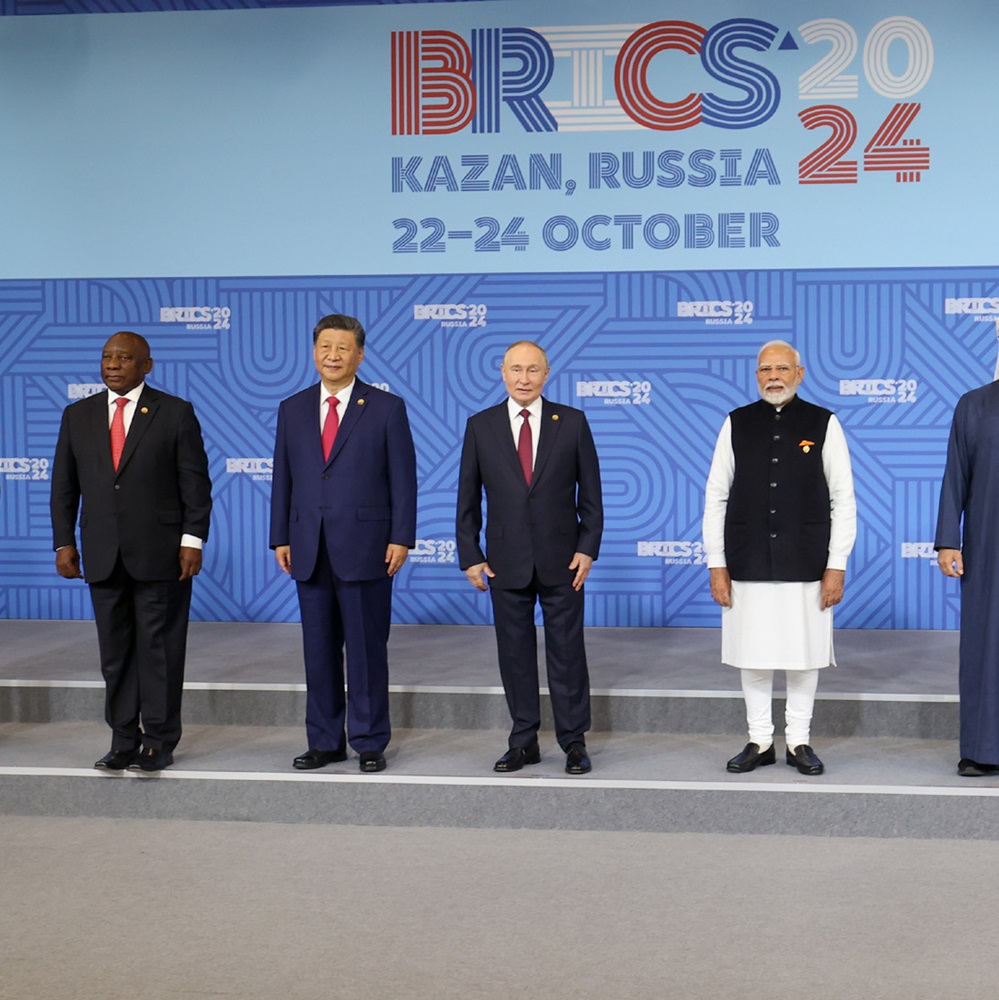
'Personal Chemistry' vs. Disagreements in Syria: What Awaits Turkey Under D. Trump’s Presidency?
by Kamran Gasanov
Leer en español In Deutsch lesen Gap اقرأ بالعربية Lire en français Читать на русском The victory of the “non-systemic” Donald Trump in the presidential election this time may not have been a surprise, but, as in 2016, it leaves no one indifferent. The world can be roughly divided into those who welcome the Republican's success and those who see the election results as bad news. The first group includes the leadership of Israel, Georgia, Hungary, and Slovakia. The second group comprises Ukraine, Germany, France, China, and Iran. Turkish President Recep Tayyip Erdoğan falls into the jubilant camp—he places high hopes on bilateral relations and joint solutions to global crises. Does R. T. Erdoğan have grounds for optimism? “Chemistry” and Non-Interference in Internal Affairs Looking back at Donald Trump’s previous four years in office, it becomes clear that the results for Turkey were ambiguous. On the one hand, a personal chemistry developed between Recep Tayyip Erdoğan and Donald Trump — the American leader has a natural affinity for strong leaders, as Angela Merkel recently noted in her book. Even as a presidential candidate, Trump praised Erdoğan in an interview with The New York Times for successfully suppressing the attempted coup. In the same interview, given a week after the failed coup attempt, Trump suggested that the U.S., not being a model of democracy itself, has no right to demand Ankara adheres to civil liberties. Furthermore, he indicated that he would not prioritize ideological issues in relations with a NATO ally. Overall, Donald Trump largely fulfilled his campaign promises. The White House refrained from emphasizing human rights issues or openly supporting the opposition — despite having plenty of reasons to do so. During Trump’s first term, Recep Tayyip Erdoğan cracked down on the organizers of the coup attempt and conducted mass purges within the military, law enforcement, judiciary, and education systems. He also arrested Kurdish politicians, including the founder of the Peoples' Democratic Party, Selahattin Demirtaş, and consolidated his power by transitioning from a parliamentary to a presidential system.At the time, the U.S. liberal press was particularly concerned that Trump was “ignoring Mr. Erdoğan's authoritarian repression of his own people”. Four months after Donald Trump's inauguration, he welcomed his Turkish counterpart to the Oval Office and acknowledged Turkey's efforts in the fight against ISIS (a terrorist organization banned in Russia). Shortly thereafter, in August 2016, the Turkish Armed Forces launched Operation Euphrates Shield to clear the Syrian city of Al-Bab of terrorists. Under Donald Trump, Ankara-Washington relations had their contentious issues, but many of them were largely inherited from Barack Obama's administration. The attempted coup in Turkey occurred during the Democratic administration in the U.S., and none of the Western leaders, except the British Prime Minister, condemned the coup. It was under Obama that Turkish-American relations entered a genuine crisis. Recep Tayyip Erdoğan began turning away from NATO and the EU, strengthening ties with Russia by negotiating the Turkish Stream pipeline, purchasing S-400 missile systems, and constructing the Akkuyu Nuclear Power Plant. At the same time, the Obama administration refused to extradite preacher Fethullah Gülen, whom the Turkish leadership considers the mastermind behind the coup attempt. The Apple of Discord — Syria The primary, though not the only, sticking point between Trump and Turkey was Syria. On one hand, U.S. support for the Kurdish People’s Protection Units (YPG) in the fight against ISIS began under Barack Obama, and Recep Tayyip Erdoğan criticized him for supporting terrorism. However, under Donald Trump, the U.S. continued supplying weapons to the YPG, which became part of the Syrian Democratic Forces (SDF) under Pentagon patronage. At the same time, Trump welcomed Turkey's fight against the Kurdistan Workers' Party (PKK), even though Ankara views the YPG as the PKK’s Syrian offshoot. In November 2017, however, the White House announced it would halt arms supplies to the Kurdish militias. The logic was that ISIS had been defeated, and the U.S. needed to focus on resolving the Syrian conflict and containing Iran. To achieve these goals, allies were essential, and Turkey, as a long-standing NATO member with the region’s most powerful army, clearly outweighed the YPG in strategic importance. Under Donald Trump, Recep Tayyip Erdoğan had the opportunity to address the negative legacy of Barack Obama in Syria. In 2018, he launched Operation Olive Branch, seizing control of the Kurdish canton of Afrin alongside the Syrian armed opposition. In October 2019, Turkey conducted Operation Peace Spring. Before its commencement, Turkey hoped that the U.S. would facilitate the withdrawal of Kurdish forces to the southern part of the country. Speaking at the UN General Assembly, Erdoğan warned that if the Pentagon failed to achieve this, the Turkish Armed Forces would unilaterally establish a so-called “safe zone” along the Turkish border. This zone would involve pushing out the YPG and their political wing, the Democratic Union Party (PYD). On October 7, two days before the operation, Trump applied pressure on Turkey, threatening to “destroy and obliterate” its economy. Ultimately, Turkey carried out its operation. While the U.S. did not officially approve it, they withdrew their troops from the combat zones. On October 17, the U.S. and Turkey reached an agreement to pause the operation, allowing Kurdish forces to leave a 30-kilometer zone in northern Syria. Details of the conflict resolution were finalized on October 22, when Erdoğan and Putin signed a memorandum in Sochi. According to the agreement, YPG members were required to withdraw 32 kilometers south from the entire Syrian-Turkish border. Turkey, along with the Syrian armed opposition, maintained control over the areas it had captured, stretching from Tel Abyad to Ras al-Ayn. Meanwhile, Russia and Turkey agreed to conduct joint patrols in territories cleared of YPG, extending “up to 10 kilometers from the border to the west and east of the Peace Spring operation zone, excluding the city of Qamishli”. Relations between the American and Turkish presidents were further strained by Turkey’s purchase of Russian S-400 air defense systems. Under Donald Trump, Turkey was removed from the F-35 fighter jet development program as punishment for the deal. Another point of contention arose in July 2018, when Trump threatened Turkey with “major sanctions” over the detention of American pastor Andrew Brunson. Erdoğan suggested exchanging Brunson, who was accused of ties to Gülenists, for Fethullah Gülen. In the end, Brunson was released in October the following year, but Ankara made it clear that the court’s decision was not a result of Trump’s pressure but rather an independent ruling by a democratic state. Donald Trump’s Pragmatism Despite points of divergence inherited from Barack Obama and new conflicts that emerged, Donald Trump consistently sought to remain pragmatic. He acted from a position of strength, but avoided alienating his partner. On October 15, Trump imposed 50% tariffs on Turkish steel, and just two days later, he called Erdoğan a “hell of a leader” and thanked him for halting military actions in Syria. Toward the end of his term, Trump attempted to ease tensions with Turkey. During a White House meeting on November 13, 2019, he openly admitted to being a “big fan” of the Turkish leader, describing their relationship as “wonderful”. In return, Erdoğan referred to the Republican president as a “dear friend”. At the same meeting, Trump expressed hope to resolve disagreements over the S-400 and F-35 issues “through dialogue”. What Are the Expectations? Donald Trump’s first term left a lasting impression on Turkish society. The Republican’s threats in 2018 triggered the first collapse of the lira, and now, with Turkey’s economy in deep crisis, similar incidents are even more dangerous. Economist Fatih Ozatay fears that a new trade war initiated by Trump could provoke retaliatory actions from other players, including China. A reduction in global trade volumes would impact Turkey’s economy by shrinking its export opportunities and further increasing pressure on the lira. Optimism from Turkish Leadership The Turkish leadership remains optimistic. Recep Tayyip Erdoğan was among the first world leaders to congratulate the Republican on his return to the Oval Office. As soon as the U.S. election results were announced, Erdoğan posted on the social media platform “X”: “Congratulations to my friend Donald Trump, who won the U.S. presidential election after a hard-fought battle and was re-elected as president”. The following day, Erdoğan called Trump, expressing hope for future cooperation. An invitation for Trump to visit Turkey has already been sent. Peace in Ukraine Turkey has invested significant effort into resolving the Ukrainian conflict. Notably, the first and only successful attempt at addressing the conflict was made in Istanbul in March 2022. Turkey also acted as a mediator in the “grain deal”, the exchange of Ukrainian and Russian prisoners, and the largest prisoner swap between Russia and the West since the Cold War. Turkish Foreign Minister Hakan Fidan warned that the war in Ukraine is heading either toward a frozen conflict or escalating into a global war. Recep Tayyip Erdoğan has repeatedly criticized the West for escalating the conflict. He recently described the decision to approve long-range strikes as “fueling the war” by Joe Biden. “You won't achieve anything by following the principle 'after us the deluge'” Erdoğan cautioned. The Turkish leadership understands that no matter how much Erdoğan attempts to mediate between Kyiv and Moscow, all efforts will come to nothing without a shift in the White House’s stance. Under Joe Biden, Ankara grew disillusioned with the West’s willingness to negotiate, but with Donald Trump, things could change. “If we see that the U.S. administration under Donald Trump approaches this issue from a settlement perspective, we can easily bring this war to an end”, Erdoğan stated. He emphasized that Turkey remains committed to pursuing peace, and if Trump’s peace-oriented rhetoric becomes reality, the chances of success will significantly increase. Gaza – Under Question, Hope for Syria When it comes to the Middle East, the main “issues” remain Palestine, Syria, and Lebanon. In Lebanon, peace was achieved at the end of November — Joe Biden secured a ceasefire. The current head of the White House has promised to resolve the Israeli-Palestinian conflict as well, but so far, no progress has been observed. Recep Tayyip Erdoğan believes that under Donald Trump, the Middle East could see “lasting peace and stability”, with the Republican exerting “significant influence on the political and military balance” in the region. Trump's skills as a businessman to impose his will and negotiate could lead to agreements. It is worth recalling that the Abraham Accords — Israel's agreements with the UAE, Bahrain, Sudan, and Morocco — were reached under his administration, and for Palestine, he developed the “Deal of the Century”. At the same time, Turkey understands Donald Trump and his team have a pro-Israel stance — this is evident from his previous decisions regarding Jerusalem, the Golan Heights, and the nuclear deal. In the new administration, Secretary of State Mark Rubio aims to eliminate Hamas rather than negotiate with it. The future Secretary of Defense, Pete Hegseth, an evangelical, considers the construction of the Third Jewish Temple on the site of one of Islam's holiest sites, the Dome of the Rock, to be acceptable. Hakan Fidan highlighted Trump’s pro-Israel team at the end of November: “If you look at [Trump’s] cabinet, it signals that his pro-Israel team will support all of Netanyahu's expansionist ambitions. However, if we rely on Trump's own words, 'I did not come to start new wars but to end them,' we might see an opposing trend. We will observe how these two contradictory signals balance with each other and how this will impact the region soon”. In an earlier statement, Recep Tayyip Erdoğan suggested to the newly elected U.S. President that halting arms supplies to Israel would help resolve the situation in the region. However, it is unlikely that this request will be heeded, especially considering that even Joe Biden, who has been critical of Benjamin Netanyahu, did not dare to take such a step. Cooperation in Syria appears more realistic for Ankara, albeit with reservations. Speaking at the COP29 conference in Baku, Recep Tayyip Erdoğan once again stated that the Turkish Armed Forces (TAF) might resume fighting against Kurdish militias in Syria and complete Operation “Peace Spring”, advancing both westward and eastward from already controlled territories. In his “analysis of Trump”, Hakan Fidan expressed hope that Trump would withdraw 800 American soldiers from all of northeastern Syria, which would enable the TAF to carry out the operation. However, the minister expressed doubts that President Trump would agree to such a step immediately: “My impression of Donald Trump is this: despite his statements on various issues, he tends to postpone decisions on critical matters”. “A Trusted Ally” in the White House While the situation with Israel is relatively clear—Donald Trump is surrounded by anti-Iran and anti-Palestinian hawks—Turkey has fewer allies in the new administration. One notable exception is political strategist Susie Wiles, who will serve as the Chief of Staff at the White House. Wiles is a veteran of politics and a trusted adviser to Trump, having worked on his presidential campaigns in 2016 and 2020. She has strong ties to lobbying networks and a deep understanding of the president's interests. Wiles has extensive experience working with prominent lobbyist Brian Ballard, who represented Turkey's interests in Washington. A key moment in this relationship was the 2017 meeting between Turkish Foreign Minister Mevlüt Çavuşoğlu and Brian Ballard, which advanced the lobbying of Turkish business interests in the United States. Susie Wiles, leveraging her connections and influence, successfully conveyed Turkey's priorities to Donald Trump and his administration, resulting in significant actions — such as attempts to close legal cases against the Turkish bank Halkbank, whose executives were accused of illegally transferring billions of dollars to Iran. Wiles' ties to Brian Ballard suggest that she will continue to advocate for Turkey's interests in her new role, particularly in the context of strategic trade between the two countries. The political strategist's influence could potentially soften the “America First” stance when it comes to Turkey, possibly leading to compromises in areas like Syria. For the finalization of Operation “Peace Spring”, Ankara requires a “green light” from the U.S., which currently backs the YPG. Wiles' position may play a pivotal role in facilitating this agreement. Optimism for the Future? The Erdoğan administration's hopes for improved relations with the U.S. under Donald Trump are not solely based on prior positive experiences with him and his encouraging statements on various issues. Turkish leadership had a highly unpleasant experience interacting with Joe Biden's team. Early in his presidency, Biden officially recognized the mass deaths of Armenians in the Ottoman Empire as genocide. His administration exerted pressure on Turkey over its stance on the Russian-Ukrainian conflict and anti-Russian sanctions, even imposing sanctions on Turkish companies. The State Department and the White House frequently criticized Turkish authorities for human rights violations and the erosion of democratic principles in the country, almost openly supporting the opposition bloc during the 2023 presidential elections. Additionally, largely due to Pentagon opposition, Turkey refrained from completing its operation in Syria. Just days before Donald Trump and Recep Tayyip Erdoğan's meeting in 2019, the House of Representatives approved sanctions against Turkey for its military operation in Syria. While many issues during Trump’s previous presidency could be attributed to an anti-presidential Congress, this time, the Republican president will face fewer restraining mechanisms, as his party dominates both the Senate and the House of Representatives. It is also worth noting that the anti-Turkish Armenian and Greek lobbies wield greater influence over the Democratic Party than over the Republicans. Donald Trump's pragmatism, combined with his support from Congress and the presence of a “trusted ally” within his administration, provides grounds for improving Turkish-American relations. However, systemic issues between the two countries remain, imposing limitations even on a “dear friend” like Trump. Turkey continues to diversify its foreign policy. Ankara is unwilling to sacrifice key economic, energy, and infrastructure projects with Russia and China as it integrates into the SCO and BRICS. The Syrian case could become a factor of either convergence or antagonism, particularly if Trump refuses to compromise on the Kurdish issue. At the same time, potential escalation in Idlib, which could hinder normalization between Damascus and Ankara, would enhance U.S. influence in Turkish politics. Lastly, if Trump fails to bring peace to Palestine, Turkey is likely to intensify its policies and rhetoric against Israel, further straining relations with the newly elected president.










